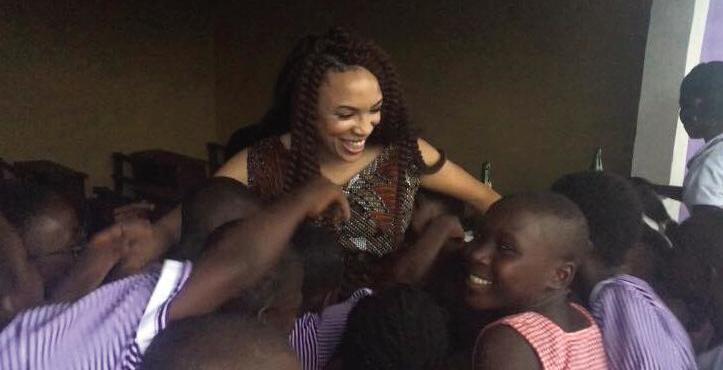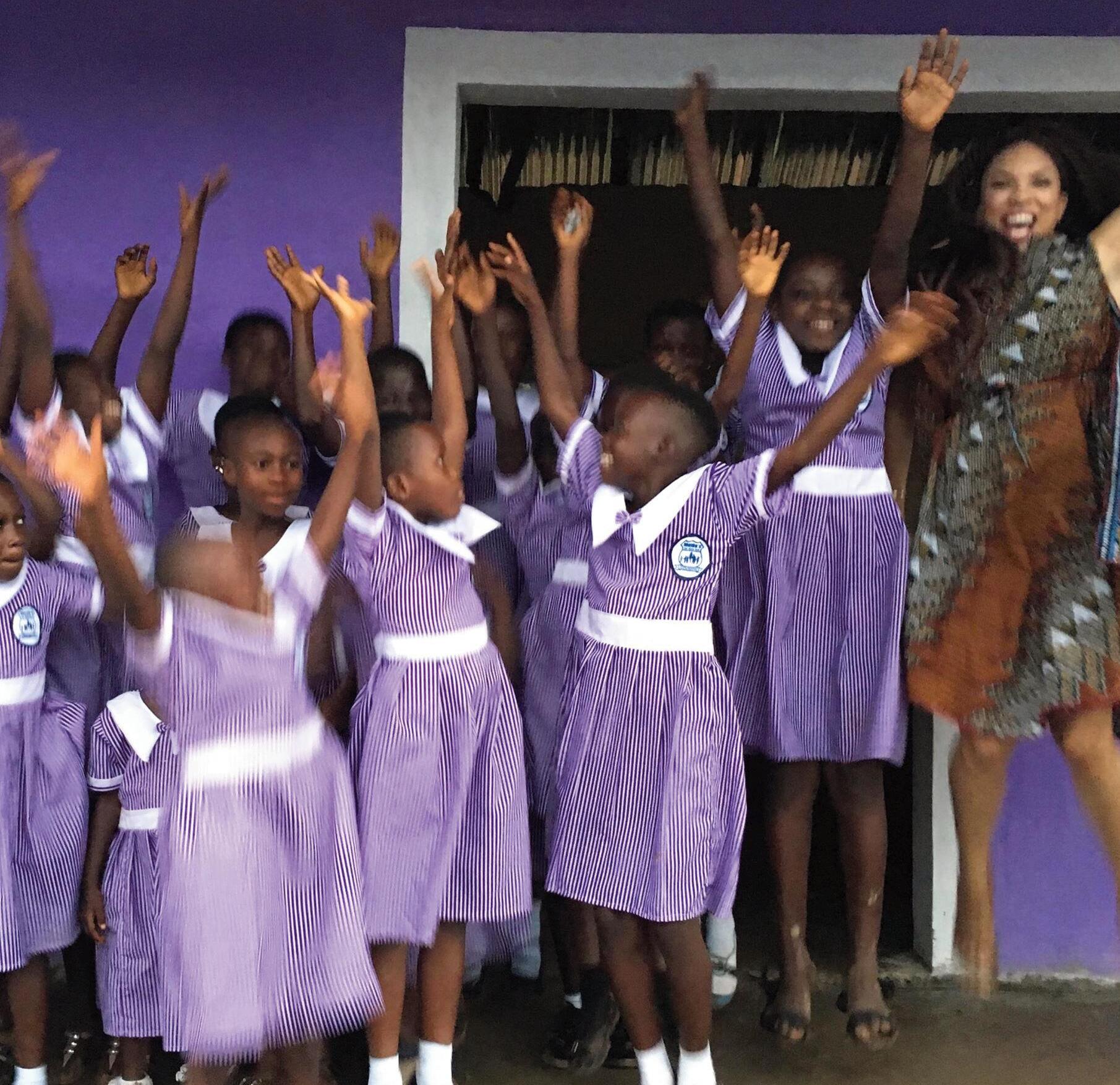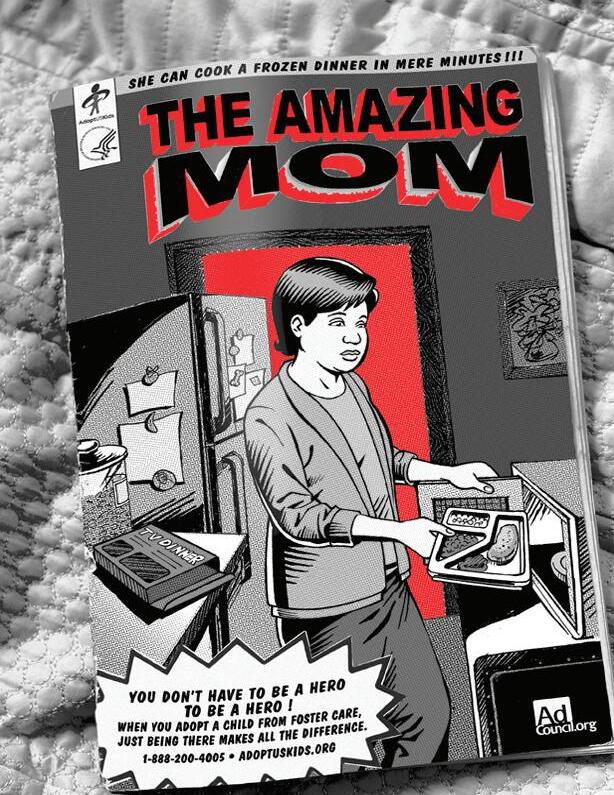
4 minute read
How She Got Over
Foster youth advocate MelissaRoshan Potter breaks the cycle by giving back
By Nana Ekua Brew-Hammond Foster Focus Contributor
Advertisement
In a sea of filtered selfies and humble brag posts, MelissaRoshan Potter ’s social media presence is a refreshing refuge. “You are not your experiences,” she often expresses in uplifting status updates and stories. “You can write a new narrative for your life daily by the choices you make ” She repeated this hard earned mantra in an intimate interview, answering a range of questions about her journey from foster care to foster youth advocate and founder of MelRo’s Foundation.
“As a foster youth advocate, I have participated in several campaigns to increase the age-out age from 18 to 21 in the state of Ohio,” Potter, 37, writes, listing her credentials. “I am a public ambassador for Children's Rights, a foster parent trainer, and a trainer for trainers of foster-parenting classes.” She adds, “I teach ACES workshops/Trauma Informed Parenting. I've keynoted countless foster care conferences I’ve started a YouTube channel for foster children and parents.
Recently, I became an ‘Angels in Adoption’ recipient, awarded by Senator Sherrod Brown for my advocacy work.” At 10 years old, when Potter first entered foster care, she could not have imagined this would be her story let alone her truth
Born in foster care to her then 13½year-old mother, she was raised by her grandmother until a close family friend called the police after witnessing her being beaten with barbecue tongs When police removed her from the home, Potter says she felt like she had done something wrong
“I sat in the back of the police car, and cried my eyes out,” she writes via email. “I was absolutely devastated. Beyond afraid of what was to come. … But what's crazy is, I would've rather (in that moment that I sat in the back of the police car) been back with my grandmother because of the sheer terror I felt about the prospect of going to foster care.”
What followed was a rollercoaster of trauma and abuse. From 10 to 15, Potter was placed in 23 foster homes
“That’s like getting used to 23 different ways of living,” she explains in her powerful 2015 TEDxColumbus Talk. “23 different sorta kinda moms and dads 23 hopes that they would adopt me. 23 disappointments. 23 different disruptions.”
Her time in foster care ended when she transitioned to a home for teen mothers after a judge gave her 24 hours to find housing away from her son’s abusive father or risk losing him to foster care. “The Aridell Mitchell Home in Seattle, Washington saved my life really,” Potter reflects. “They provided a safe place for my son Trey, and me They also taught me life skills like: money management, parenting skills, provided empowerment workshops, cooking classes, and on the job etiquette.”
After a girlhood marked by abuse and interruption, the years that followed were studded with triumph. A modeling scout discovered Potter She earned her GED. She eventually married, and had a daughter. But the trauma of her expe- riences, though invisible in her new life, remained
In 2011, Potter found herself in the psych ward of X hospital, strapped to her bed, after contemplating jumping into the Hoover Reservoir She credits rising from that bed and breaking the cycle of institutionalization in her life with a choice to seek help.
“The wounds may not be our fault, but we must make the choice to take on the responsibility of our own healing.”
For Potter, healing has meant finding her birth parents and forgiving them, developing her faith, seeking counseling, and the personal commitment to remain healthy And it has sharpened her purpose: helping the next generation of vulnerable youth elude the statistics accorded to foster youth
As far as Potter is concerned, 21 percent of youth in foster care don’t have to become teen parents. 33 percent don’t have to attempt suicide 75 percent don’t have to end up on death row. Over half of foster youth don’t have to live their adulthood in poverty Way more than 3 percent can go to college and beyond In 2017, she launched MelRo’s Foundation to help make sure of it.
With the mission to educate, empower, and heal one child at a time, the Foundation’s first project is MelRo’s International School Located in Agona Nkum in the Central Region of Ghana, the facility, which is scheduled to open September 7, 2018, will provide educa- tion for up to 500 girls, an orphanage for 150 girls ages 2 to 16, and Trauma Informed Care administered by an allfemale staff. work to heal.” And the healing process is ongoing as Potter openly shares in confessional Facebook and Instagram posts.
“I speak openly and candidly about my struggles because it is a huge part of my purpose I believe that the greatest teachers have learned from their own experiences, and should not keep those experiences to themselves ” This said, she is careful to protect herself from trolls and the pain of reliving the past

“I like to focus on 80 percent of my victories, and 20 percent of my traumas, however. One, it keeps me emotionally safe, and two, people need to know there is hope that is available to us all We just have to do the very real work to get there ”
As Potter prepares to fly to Ghana for the opening ceremony of her school, she reflects on her journey with gratitude

“With the wonderful co-parenting from my ex-husband, and a strong village surrounding us, my children have a great life The oldest, Trey, who I gave birth to when I was a teenager, has made the Dean’s List three times in college, and is on his way to having a beautiful life. My daughter, Corrine is vibrant, thoughtful, and amazing ”
For Potter, being “on the other side of foster care” feels “surreal at times ”
“The effects of trauma on the brain are very real, and damaging,” Potter knows from experience, which is why she aims to do all she can to decrease it in her life and other youth “I've had to do GREAT
“The system that once broke me,” she says, “has not only led to my breakthrough, but it has also led to others’ breakthroughs ”












